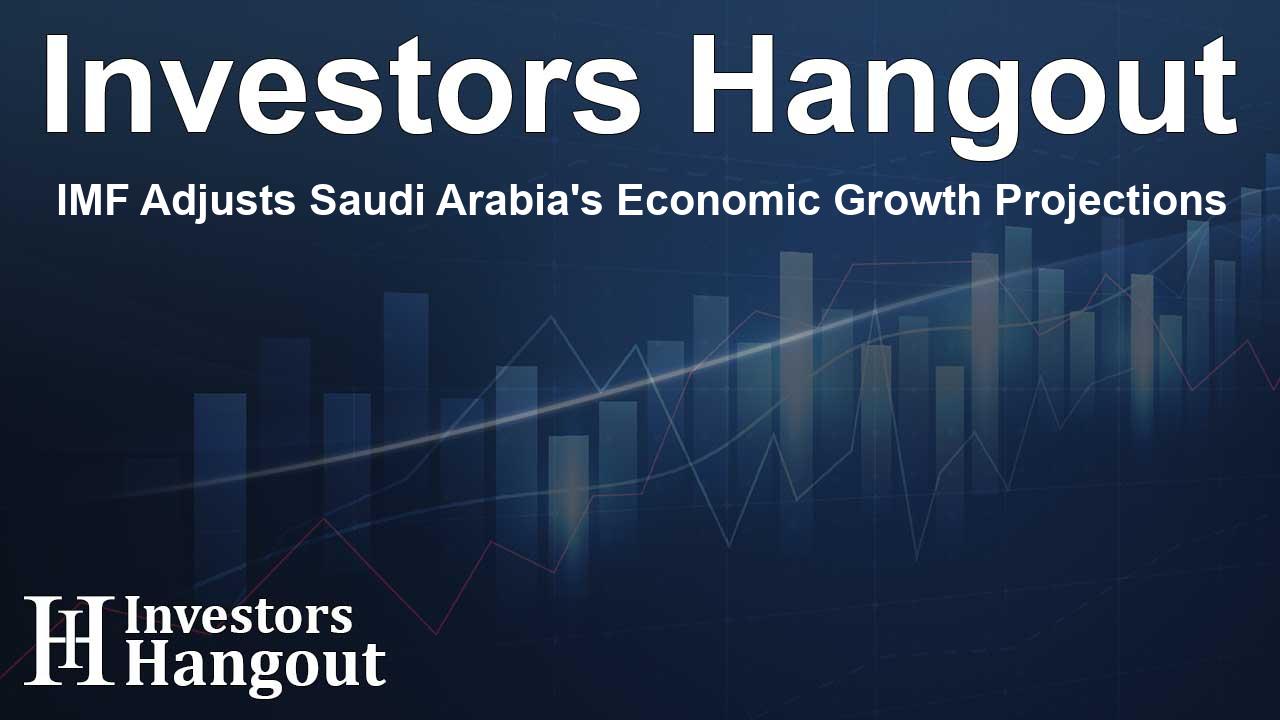IMF Adjusts Saudi Arabia's Economic Growth Projections

IMF's Revised Forecast for Saudi Arabia's Economic Growth
The International Monetary Fund (IMF) has made notable adjustments to its economic growth forecasts for Saudi Arabia, revealing a decline larger than that for any other significant global economy. The principal factor for this change is attributed to the OPEC+ oil alliance's decision to extend its production cuts.
Understanding Growth Projections
In this latest assessment, the IMF has decreased Saudi Arabia's growth outlook by 1.3 percentage points, bringing the expected growth rate down to 3.3% for the current year. This adjustment marks a continuation of several downward revisions for the kingdom that commenced last year, demonstrating a cautious approach towards the kingdom's economic trajectory.
Long-Term Economic Predictions
Furthermore, projections for 2026 have also been lowered, with the growth forecast set at 4.1%. The IMF's new forecasts for 2025 indicate a pace of economic growth that is less optimistic than what was previously anticipated by the Saudi Finance Ministry.
Comparison with Saudi Finance Ministry Projections
Previously, in September, the Saudi government announced its own projections, suggesting an expected growth rate of 4.6% for this year and a marked decline to 3.5% for 2026. Despite these downward adjustments, the anticipated growth rate of nearly 4% in the coming years still positions Saudi Arabia favorably, exceeding the growth rates forecasted for most other Group-of-20 nations.
Implications of OPEC+ Cuts
The ongoing production cuts from the OPEC+ alliance have sparked significant discussions regarding their impact on the future of oil prices and, consequently, on Saudi Arabia's economy. With the kingdom being a leading oil producer, any alteration in production policies could have far-reaching effects on its GDP growth and overall economic stability.
Conclusion
As the global economic environment continues to evolve, Saudi Arabia will undoubtedly face challenges influenced by both internal and external factors. The IMF's revisions serve as a critical indicator of how global oil production decisions can directly affect the economic forecasts of a major economy such as Saudi Arabia.
Frequently Asked Questions
Why did the IMF reduce Saudi Arabia's growth forecast?
The IMF reduced its forecast due to the OPEC+ decision to prolong production cuts, impacting expected economic growth.
What is the new growth projection for Saudi Arabia?
The current growth projection for Saudi Arabia has been set at 3.3% for this year.
How do the IMF and Saudi Finance Ministry forecasts compare?
The IMF's revised estimates are lower than those provided by the Saudi Finance Ministry, which predicted 4.6% growth for this year.
What are the long-term projections for Saudi Arabia?
The IMF has forecasted a growth rate of 4.1% for 2026, indicating continued cautious optimism for the kingdom.
What role do OPEC+ production cuts play?
The OPEC+ production cuts are crucial in shaping Saudi Arabia's economic outlook, as they directly affect oil prices and production capacity.
About The Author
Contact Henry Turner privately here. Or send an email with ATTN: Henry Turner as the subject to contact@investorshangout.com.
About Investors Hangout
Investors Hangout is a leading online stock forum for financial discussion and learning, offering a wide range of free tools and resources. It draws in traders of all levels, who exchange market knowledge, investigate trading tactics, and keep an eye on industry developments in real time. Featuring financial articles, stock message boards, quotes, charts, company profiles, and live news updates. Through cooperative learning and a wealth of informational resources, it helps users from novices creating their first portfolios to experts honing their techniques. Join Investors Hangout today: https://investorshangout.com/
The content of this article is based on factual, publicly available information and does not represent legal, financial, or investment advice. Investors Hangout does not offer financial advice, and the author is not a licensed financial advisor. Consult a qualified advisor before making any financial or investment decisions based on this article. This article should not be considered advice to purchase, sell, or hold any securities or other investments. If any of the material provided here is inaccurate, please contact us for corrections.
